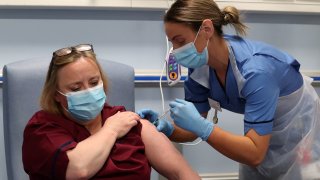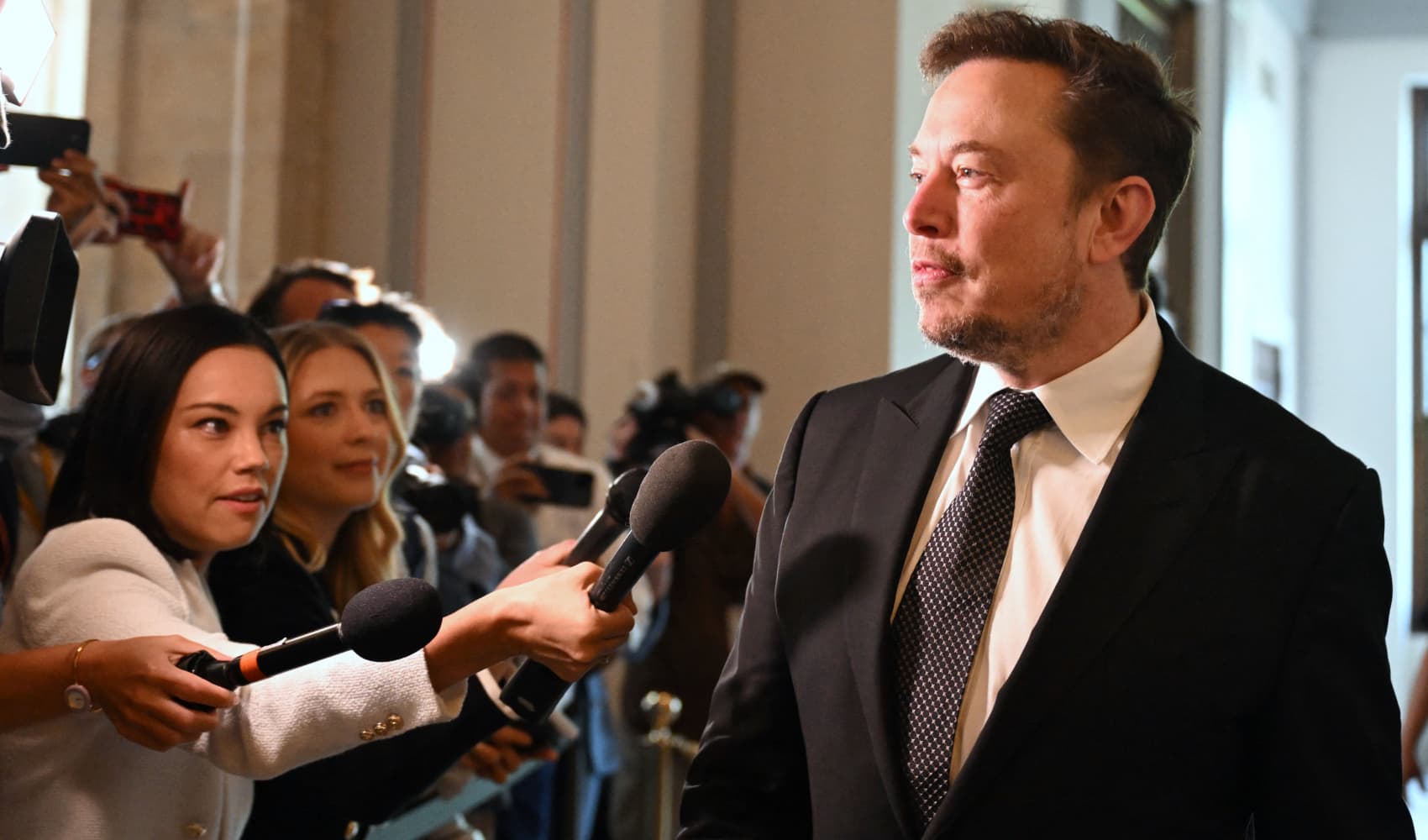
- The U.K. government is facing questions over whether the country is about to face a shortage in the supply of coronavirus vaccines.
- Disruptions could dent the country's so-far successful vaccination program.
- "We have less supply than we might have hoped for the coming weeks but we expect it to increase again later," Housing Secretary Robert Jenrick told the BBC on Thursday.
LONDON — The U.K. government is facing questions over whether the country is about to face a shortage in the supply of coronavirus vaccines, a factor that could dent its so-far successful immunization program.
"We have less supply than we might have hoped for the coming weeks but we expect it to increase again later," Housing Secretary Robert Jenrick told the BBC on Thursday.
"The vaccine rollout will be slightly slower than we might have hoped but not slower than the target," he said. "We have every reason to believe that supply will increase in the months of May, June and July."
Get a weekly recap of the latest San Francisco Bay Area housing news. Sign up for NBC Bay Area’s Housing Deconstructed newsletter.
Later, Jenrick told Sky News that the government is "sourcing vaccines from all over the world and we are experiencing occasionally some issues and that's led to this, this issue with some supply in the coming weeks."
Jenrick's comments come amid a flurry of reports in the British media that the U.K.'s rollout could be about to hit some turbulence. It's been widely reported that a delivery of millions of doses of the Oxford-AstraZeneca shot being produced by the Serum Institute of India could be held up by four weeks.
Jenrick refused to comment on specific contracts, however. CNBC has contacted the Serum Institute of India, the world's largest vaccine manufacturer, for comment on the reports but is yet to receive a reply.
Money Report
Ten million doses of the AstraZeneca Covid vaccine were expected to come from the SII, Reuters reported in early March. In all, the U.K. has ordered 100 million doses of the AstraZeneca-Oxford vaccine, with the bulk of the supply coming from within the U.K.
However, Britain is also facing possible disruptions to supply if the EU goes through with a proposal to withhold exports of vaccines made in the bloc while its own program lags. Supplies of the Pfizer-BioNTech vaccine that the U.K. is also using in its vaccination program come from Belgium.
Since it began its rollout started in December, Britain's health service has overseen the vaccination of over 25 million people with a first dose of the vaccine. Over 1.7 million people have now had a second dose of the two-shot vaccines currently being used in the U.K., government data shows.
'Still on track'
The National Health Service had reportedly already warned of a reduction in supply for England "in April in a letter to local health organizations," according to the BBC.
But the government has said that it is still on track to offer all over-50s a first dose of the vaccine by April 15, and all U.K. adults a first shot by the end of July.
"The vaccination programme will continue in the coming weeks and more people will continue to receive first and second doses," a Department of Health and Social Care spokesperson said in a statement Wednesday night.
"As has been the case since the programme began, the number of vaccinations carried out over time will vary due to supply."
It's not the first hurdle to hit the AstraZeneca-Oxford vaccine itself. The shot's use in a handful of European countries is currently paused due to concerns over a possible link to reports of blood clots.
The World Health Organization has said that there is currently no link between the vaccine and such cases, however, and has recommended that the vaccine continues to be used. The European Medicines Agency's safety committee is meeting Thursday to discuss vaccine data.
The vaccine has also come under fire over its clinical trial methodology and some European countries questioned the efficacy of the shot in the over-65s, although real-world data has since proven the vaccine is highly effective at reducing severe Covid cases, hospitalizations and deaths in adults. The Anglo-Swedish pharmaceutical giant has also experienced a well-publicized dispute with the EU over the delivery of supplies to the bloc.
Public confidence in AstraZeneca's vaccine is also likely to have been damaged now due to the suspension. Although several countries have said they are ready to quickly resume using it if the EMA confirms it is safe to use.
'Major problem'
Global health experts have long-warned that vaccines, their supplies and distribution, would be an area ripe for discord between countries and regions.
Dr. Margaret Harris, a spokesperson for the World Health Organization, told CNBC Thursday that the public health body knew from the start of the pandemic that vaccine distribution would be a "major problem."
"In previous outbreaks, that is exactly what has happened. Some groups and countries have had good access (to vaccines) and have even had excessive access, while a lot of countries were left with nothing. We saw this during the flu pandemic of 2009," she told CNBC's "Squawk Box Europe."
"We're really encouraging manufacturers to make arrangements to enable more manufacturing around the world to really increase supply," she said.
The U.K.'s vaccination program has been its saving grace following the pandemic that hit the country hard. The U.K. has counted the fifth-highest number of cases in the world, with over 4.2 million infections reported, and has recorded over 126,000 deaths to date, according to Johns Hopkins University.






